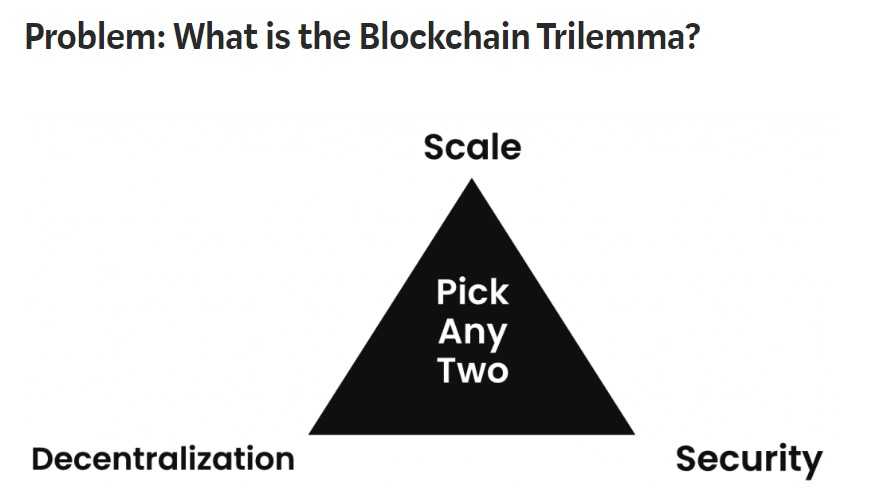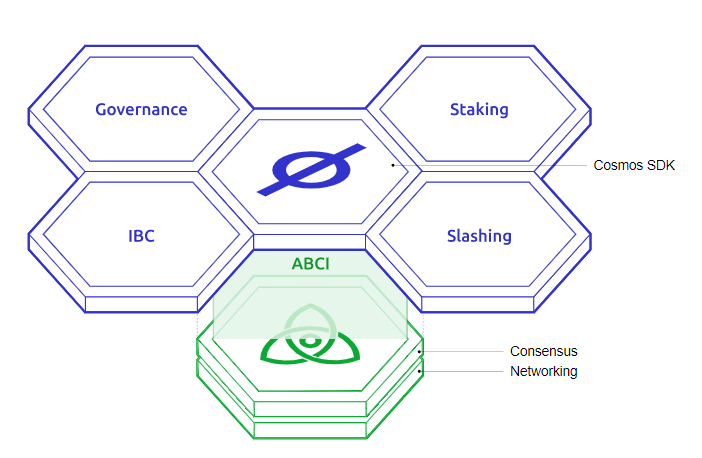Top 15 Public Blockchain platform that Reshaping the World
While Blockchain is re-shaping the internet, financial service, supply chain, gaming, privacy, Decentralized Finance (DeFi), cross border transaction and many more applications, we have seen significant rise of cryptocurrencies. 2017 was the year of crypto hype, 2018 a year of focused technical development, 2019 was the year when sophisticated blockchain companies start Building businesses, 2020 and onward will be the year for institutional investors adoption, building regulations and toward mass adoptions.

Currently over 5000+ cryptocurrencies exist in the market and many more to come in upcoming days as Blockchain-as-a-Service. Among them over 50% of these coins to die either they are scam or lack of proper leadership or tech resource or Funds. From new-comers perspective, it’s a hard task to identify good projects and sometimes it’s dangerous to invest on projects which lacked fundamentals in terms of technology as crypto-space is still very much speculative and immature. Most of time, new investors and even experience folks invest based merely on hype and chose coins by just looking at the CMC ranking or hearing from friends those are investing which perhaps misleading to identify solid long lasting tech. Moreover, people sometime get confused to see so many coins and they consider all of them as same as Bitcoin. This approach is more riskier or incorrect in terms of investment as Blockchain is a very vast field and it has so many application and facets.
In this Article, I have highlighted 15 public blockchain which have translated their user networks into growing businesses. These 15 cryptocurrencies have created global impact whether it’s through offering premium financial services, supply chain, gaming, The internet of things, Governance, cross border transactions, banking industry, Defi, digital identity, Entertainment Industry, implementing private blockchains for enterprise clients, entering into commercial partnerships, or a number of other compelling business cases.
1. Bitcoin (BTC):
Bitcoin is the first cryptocurrency ever created and is, naturally, the most famous one. It was introduced in 2009 by pseudonymous developer Satoshi Nakamoto. Unlike traditional fiat currency, there is no central bank controlling it and it runs on top of a distributed network, maintained by thousands of computers around the world. Bitcoin considers as gold standard of digital currency as due to the open source, decentralization nature and most secured public blockchain network thus far.
To learn more visit — https://bitcoin.org/en/
2. Cardano (ADA):
Cardano is a groundbreaking proof-of-stake blockchain network based on Ouroboros and comprised of more advanced features than any blockchain protocol yet developed including quantum resistance and decentralization feature even higher than bitcoin. Cardano platform working toward to bring the network in capable of running financial applications currently used every day by individuals, organisations and governments all around the world. Cardano is still in its infant stage but 2020 and onward this project will see enormous growth as its smart contract and Shelly ready to be up to production in main net. Scalability and governance optimization with Vasho and voltaire is on ramp as well. With development of this Cardano will overcome a great deal of the scaling problems associated with PoW mining and algorithms. We will see an exponential increase of Dapp adoption on Cardano platform once Shelly main net launch by Mid of 2020.
To learn more visit — https://www.cardano.org/and https://iohk.io/
3. Algorand (ALGO):
Algorand has created a next generation blockchain platform that solves many of the issues plaguing current implementations of blockchain technology. Algorand founded by cryptography pioneer, Turing award winner and MIT professor, Silvio Micali. Their Pure Proof-of-Stake consensus protocol coupled with the Verifiable Random Function (VRF) takes the blockchain trilemma head-on, solving for scalability, security, and decentralization through a unique set of features that appeals to enterprises and DApp developers alike. As Decentralized Finance will be on ramp in upcoming years, Algorand to bring lots of institutional investors and commercial financial products in mainstream.
To learn more visit- https://www.algorand.com/use-cases

4. Cosmos (ATOM):
Inter-Blockchain Communication protocol (IBC) was first coined by the Cosmos team and has since received considerable traction. IBC is a protocol that allows two heterogeneous blockchains to transfer tokens to each other which is very crucial element for interoperability. Moreover, Cosmos is a decentralized network of independent parallel blockchains, each powered by BFT consensus algorithms like Tendermint consensus. The project positions itself as a decentralized network where many high-profile crypto- currency Dapps are building such as Binance Chain and many more. Due to user-friendly and openness, COSMOS SDK and Tendermint core will see more adoption in crypto space in future.
To learn more visit- https://cosmos.network/

5. Ethereum (ETH):
Having pioneered both smart contract technology and the ICO model, the ethereum ecosystem has shifted its focus to both scaling the underlying blockchain and building enterprise-grade applications on top of it — particularly those relating to Decentralized Finance (DeFi). While Ethereum network struggling with scalability issue since it created, with its upcoming proof-of stack and sharding upgrade, network will see significant improvement. However, Ethereum might see lots of Dapps moving away as other blockchian platform to provide the need of its purpose.
For more details visit- https://ethereum.org/
6. Binance (BNB):
Binance is leading cryptocurrency exchange Offering products and services with low barriers to entry for retail users.Initially having launched as a trading platform for cryptocurrencies, Binance has since expanded to include a blockchain platform, futures trading platform, over-the-counter trading, token launchpad and lending services. Furthermore, Binance is actively educating newcomers through its Binance academy, while Binance Labs acts as a VC-like arm of the company as it explores promising startups in the space. With multiple revenue generative businesses, Binance continues to be a dominant force in the crypto ecosystem. In Long term Binance to be equivalent of NASDAQ for cryptocurrency.
To learn more visit — https://www.binance.vision/
7. Vechain (VET):
Vechain is well known leading blockchain platform for supply chain and on delivering Internet of Things solutions. VeChain enables manufactures to assign products with unique identities to the platform. This will allow manufacturers, supply chain partners, and even consumers, to track the movement of products through their supply chain. VeChain has a massive list of enterprises using its blockchain solution including Walmart China, DNV GL, PWC and many more high profile companies.
To learn more visit: https://vechaininsider.com/partnerships/a-complete-list-of-vechain-partnerships/
8. Ontology (ONT):
As one of the leading crypto project by a global blockchain expert team, The Ontology Team has created a public blockchain platform focused on delivering flexible and scalable businesses solutions to enterprise clients. Ontology supports a complete distributed ledger system, including core distributed ledger, smart contract system, cross-chain solution, sharding,WASM and security system. Also, Ontology introduces a series of protocols and frameworks that build the “last mile” for blockchain applications. They stormed into the crowd of projects vying for superiority in multichain interoperability, revealing a solution that rivals other high-profile competitors such as Polkadot, Cosmos, and Plasma.
To learn more visit- https://ont.io/
9. Avalanche (AVAX):
Avalanche is a high-speed smart contracts platform that supports sub-second finality and Visa-level throughput. The platform combines a novel and powerful Avalanche consensus protocol that enables true decentralization at near instant confirmation times with an extensible and programmable network infrastructure that allows developers to launch new subnetworks with arbitrary new execution environments. Moreover, lots of other Blockchain projects those are struggling with scalability will use Avalanche as Layer-2 solution. Lots of Dapp, Defi and real world application will built on Avalanche Protocol in upcoming days.
To learn more visit- https://www.avalabs.org/
10. Zilliqa (ZIL):
Zilliqa is a leading cryptocurrency project that aims to make blockchains faster and more scalable using sharding technology. Sharding technology to streamline the consensus process, so that Ethereum and other blockchains can host distributed applications or provide rapid transaction processing successfully. As the first public blockchain to achieve a throughput of 2828 transactions per second using sharding, Zilliqa enables new use cases that have high-throughput demands that were not previously possible on legacy public blockchain platforms. Since mainnet up, Zilliqa getting lots of traction for real world application using blockchain like Unstoppbale domain, Aqilliz, xfers, Bolt and many more to come in future.
To learn more visit — https://zilliqa.com/
11. Hedera Hashgraph (HBAR):
Hedera Hashgraph is backed by some of the world’s largest corporations including IBM, Boeing, Tata and promising faster transactions and greater capacity to scale than any blockchain to date. Although right now Hedera is running as centralized manner at the beginning but as the network get stable it will move toward decentralization. The Hedera proof-of-stake public network, powered by hashgraph consensus, achieves the highest-grade of security possible (ABFT), with blazing-fast transaction speeds and incredibly low bandwidth consumption. By combining high-throughput, low fees, and finality in seconds, Hedera leads the way for the future of public ledgers.
To learn more visit- https://www.hedera.com/users
12. Wanchain (WAN):
Wanchain is leading blockchain platform while it comes to a point of interoperability. Wanchain ecosystem is mainly for asset transport layer, similar to the TCP transport layer of the Internet. Wanchain targets the financial industry by providing smart contracts, creating bridge with cross-chain transactions and privacy mechanisms. Through Wanchain hub Blockchain and even digital currency like DCEP, Libra or even NFT’s (Non-fungible Tokens) can seamlessly transport one blockchain to other. This is eventually will led to tokenize traditial assets like Bond, stocks, other physical assets and connected through blockchain
To learn more Visit -https://www.wanchain.org/learn/
13. Zcash (ZEC):
ZCash is a privacy driven leading cryptocurrency. Its inevitable that in future, most of the cryptocurrency need to have some kind of privacy feature in order to use by mass. For example, you dont want to use a cyrptocurrency where you are getting salary and how much you paid can be seen by your colleague and how you are spending money is also identifiable. That’s not what people would like. Hence privacy feature will have huge boost in upcoming years. Zcash uses (zk-SNARKs) to ensure that all information (sender, receiver, amount) is encrypted, without the possibility of double-spending. Other privacy protocol other than zk-SNARK will also get traction like mimblewimble.
To learn more visit- https://z.cash/
14. Chainlink (LINK):
Blockchains and smart contracts cannot access off-chain data (data that is outside of the network). This is where blockchain oracles come into play, as they provide a link between off-chain and on-chain data. By allowing smart contracts to access key off-chain resources such as data feeds, web APIs, and traditional financial databases, ChainLink serves as a middleware solution that enhances the functionality of base-layer blockchains. From a macro perspective, this project is serving as a catalyst for new and exciting integrations of blockchain technology into areas dominated by more traditional solutions.With more than 30 integrations and partnerships, Chainlink is laser-focused on expanding the scope of blockchain capabilities, matching these capabilities with existing industries and systems, and ultimately driving the evolution of smart contract technology forward to displace centralized digital infrastructure.
To learn more visit — https://chain.link/
15. FunctionX (FX):
Among all the list above, FunxtionX is the underdog and less known as it is still in very early stage. Function X ecosystem is building by PundiX team and FunctionX foundation. FunctionX is a total decentralized solution. It consists of five core components: Function X Operating System (OS); Function X distributed ledger (Blockchain); Function X IPFS; FXTP Protocol and Function X Decentralized Docker. All five components serve a single purpose which is to decentralize all services, apps, websites, communications and, most importantly, data. The Function X platform has initiated a XPhone, XPOS and other Function X enable hardware device which will have significant contribution for mass adoption. BOB is the world first full blockchain enabled phone (Android & blockchain combo phone) and been awarded recently as a CES 2020 Innovation Award Honoree. We will see many more hardware devices to connect through Function X blockchain including cellphone, point-of sales and many more smart devices which will actively work as node and create a fully functional decentralized network.
To learn more visit- https://functionx.io/#/
Honorable Mention — Blockstack (STX):
Blockstack is a decentralized computing network and app ecosystem that puts users in control of their identity and data. Imagine not having to upload data on an external site like Facebook or on an app like WhatsApp, and yet being able to share it with friends and other users. Blockstack enables this by offering an all new internet platform, where all decentralized apps are run locally on the user’s browser, and users continue to own their data (text, images, videos, and files). They are also building their new “Clarity” Smart contracts partnered with Algorand that optimizes further for predictability and security for smart contract and will open further adoption on the platform. Blockstack became the first company to receive approval from the SEC to sell digital tokens in a public offering in early July, 2019.
To learn more visit- https://blockstack.org/
Usually disruptive technologies grow in multiple waves of bear-bull cycle and throughout these cycle, lots of projects dies as other projects provide better solution or project dies due to lack of fund or improper execution. People have to choose what kind of application they are interested to explore for adoption and investment including gaming, supply chain , currency or other field. Moreover, people have to use the cryptocurrency for daily use purpose rather than just trading or price speculating. Definitely we are seeing real world use case of blockchain where people can now spend their crypto to buy or sell including for grocery, restaurant/coffee, booking hotel/ flight etc . through. Travelbybit, Lolli , XPOS etc. As the technology matures over time, we will continue to see user friendliness and mass adoption of cryptocurrency.
 Adoption of Cardano will be different from the First Generation of Cryptocurrencies
Adoption of Cardano will be different from the First Generation of Cryptocurrencies Contracts can be smarter on Cardano
Contracts can be smarter on Cardano Provision of network decentralization on the protocol level
Provision of network decentralization on the protocol level About Cardano Pledging
About Cardano Pledging